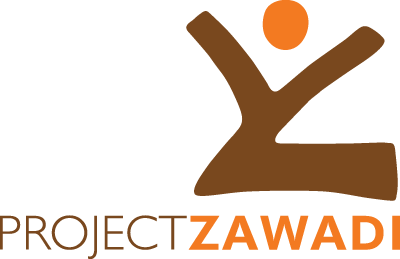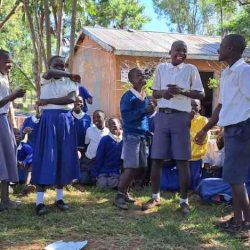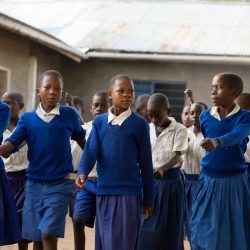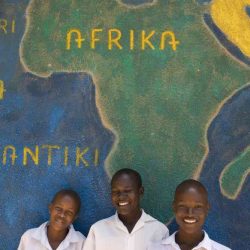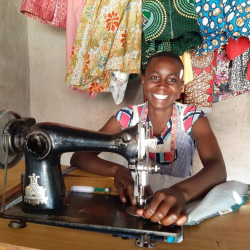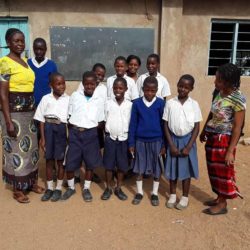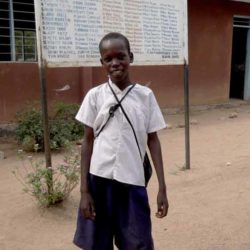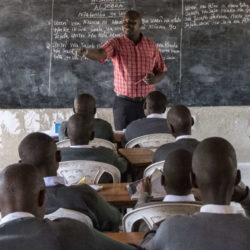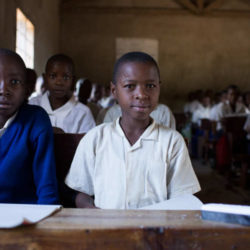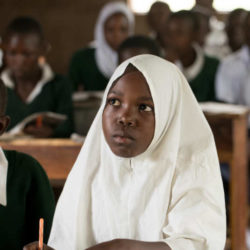Project Zawadi Through The Years
While Our Team Has Accomplished More Than We Could Capture In A Single Blog Post, Here Are Some Of Our Major Milestones Through The Years
2001: Having exceeded the fundraising necessary to support the first class of students, Project Zawadi expanded the sponsorship program. Working with a program for children living on the streets, an additional six students were chosen for sponsorship and attended primary boarding schools.
2002: Project Zawadi was asked by Zinduka Development Initiatives to expand the sponsorship program to their community of Nyamuswa. Zinduka was a very new and local non-profit being organized by a group of concerned citizens to bring development opportunities to their rural community.
2003: By 2003, it began to be clear that the strong connection and more communal nature of extended family in the Tanzanian cultural context meant that what it means to be an “orphan” is quite a different thing in Tanzania than it is in the USA. Wanting to respect and strengthen that extended family connection, the Project Zawadi Board reevaluated placing students in boarding schools away from their families and communities. Instead, Project Zawadi began to focus on supporting children within their local communities and schools, better maintaining the support and connectedness of extended families. Project Zawadi hired student counselors to provide day-to-day guidance and support as they pursued their education. Counselors conducted home visits to check in with caregivers and also visited the students and checked in with their teachers regularly at school.
2004: Project Zawadi’s first group of sponsored students entered secondary school. Project Zawadi also discontinued adding sponsored students in the Arusha area and focused instead on sponsoring students in local government schools in the Nyamuswa area.
2005: Project Zawadi saw its first vocational graduates. Trained in carpentry or needlework, these students achieved life skills which would enable them to earn an income to support themselves and their future families. Guardian Teachers were added at the primary and secondary school levels as an additional level of support and point of contact for sponsored students and Counselors at each school.
2006 – 2007: Four classrooms, a teacher’s residence, and a teachers’ office were constructed were constructed in Nyamuswa.
2008: Project Zawadi’s first sponsored student entered a university. Nyamuswa also hosted Project Zawadi’s first group of volunteers.
2009: Three classrooms were constructed in Nyamuswa.
2010: Eight toilets and one classroom were constructed. Adam Musa, Project Zawadi’s first sponsored student, was featured in a documentary short by Goodmaker Films entitled “Adam’s Story”.
2011: Project Zawadi partnered with education experts in Moshi and Dar es Salaam to offer the first teacher professional training workshop for teachers at partner schools in Nyamuswa. The training program focused on promoting a student-centered approach to active teaching and learning, to develop counseling skills, and to provide professional support for teachers in rural areas with limited resources.
2012: The course offerings at the Vocational Training Centre expanded to include computer training and welding. A computer lab was installed and its first instructor was Hamis Masenza, a former Project Zawadi sponsored student. The second annual teacher training workshop was conducted in Nyamuswa to an expanded group of educators. Two classrooms were renovated.
2013: Project Zawadi adopted Universal Children’s Day, November 20th, as our annual day of giving in support of Project Zawadi initiatives. A preschool and teachers’ office were constructed. Facilities at the VTC were also expanded to keep pace with the additional course offerings and to include a boarding option. Two dormitories and a water collection and storage tank were constructed.
2014: Project Zawadi programming shifted from providing students access to school through our sponsorship program to partnering more fully with select local schools and improving the educational capacity of those schools for all students – sponsored or not. Project Zawadi entered into a Four-Party Agreement which included Project Zawadi/Zinduka, nine local schools, local government, and the Ministry of Education to provide more concentrated support including capital projects, expanded teacher training opportunities, additional teaching and learning tools, and an expansion of the number of sponsored students at each of these ‘core’ schools. Adam Musa, Project Zawadi’s first sponsored student, joined Project Zawadi staff as a Counselor. The first Project Zawadi Donor Trip visited Nyamuswa. A classroom and a teacher’s house were constructed.
2015: The second annual Project Zawadi Donor trip visited Nyamuswa. Project Zawadi also turned an eye to improved technologies in our capital projects. A shift from traditional building methods using fired bricks to the use of an improved brick press which creates interlocking bricks of a more uniform design improves the quality of construction as well as being much better for the environment. At the Vocational Training Centre, a carpentry and welding workshop, toilet and bathing facilities, a second water collection and storage tanks, and a kitchen, dining area and storage room were constructed.
2016: The 𝗧𝗲𝗻𝗱𝗮 𝗧𝗲𝗮𝗰𝗵𝗲𝗿𝘀 Project was launched. Tenda Teachers seeks to organize professional development for teachers on a national level improving teaching and learning in classrooms across Tanzania. 2016 also brought a partnership with Books for Africa which provided 22,000 books for Little Libraries at 15 partner schools creating an exponential increase in the available books in this area. Solar power was installed at teacher homes, classrooms, and the VTC, and water collection and reuse basins constructed.
2017: Project Zawadi underwent an intensive strategic planning process. We’ve focused our vision for the future and adapted our mission to reflect lessons learned and programmatic growth.
2018: Project Zawadi’s third program, Model Schools, was launched. The initial two schools are developed a community-based five-year implementation plan. E-modules were developed for teacher professional development and support.
2019: The 𝗧𝗲𝗻𝗱𝗮 𝗧𝗲𝗮𝗰𝗵𝗲𝗿𝘀 Professional Development Program was launched with a pilot program of 212 teachers. An apprenticeship program was added as an option for sponsored students. Two additional Model Schools completed the community planning process.
2020: Project Zawadi launched rapid response projects in three key areas to prevent and slow the spread of Covid-19: masks, hand-washing, and public outreach and education.
2021: Project Zawadi’s Sponsorship was invited to train teachers and district officials to address gender-based violence in schools. This program would materialize over the following years to encompass a comprehensive approach to addressing gender based violence that works with students, families, teachers, and district officials. The 𝗠𝗼𝗱𝗲𝗹 𝗦𝗰𝗵𝗼𝗼𝗹𝘀 program added School Clubs to its programming.
2022: The 𝗠𝗼𝗱𝗲𝗹 𝗙𝗮𝗿𝗺𝘀 program was launched as a pilot program at the four Model Schools. The Model Farms program utilizes Conservation Agriculture techniques to enhance soil biodiversity and increase yield. The primary goal of the program is to provide one meal a day per student while at school.
2023: Project Zawadi hosted the first annual Chamriho 5k in Nyamuswa. This local fundraiser rallied supporters from around the region to support school feeding programs at four schools. Through registration fees and sponsorships, 1,740,000 Tsh was raised (that’s about $730.00!). Two 6 in 1 teacher housing units were completed at Sarawe Primary School and Kambarage Primary School and officially handed off to the communities. Water projects at three Model Schools were complete bringing water to the schools and surrounding community.
